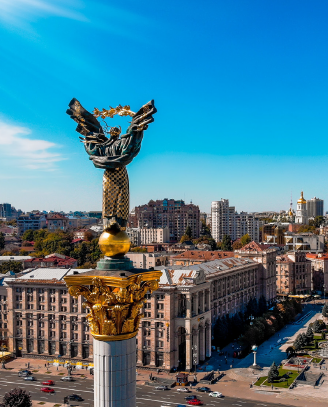Blog post
02/03/23La victoire, oui mais laquelle?

Nous soutenons l’Ukraine jusqu’à la victoire, et c’est effectivement la seule stratégie à la fois juste, raisonnable, morale. Pour autant, ce consensus occidental recouvre beaucoup de questions, de non-dits, de nuances, peut-être de différences sur ce que l’on appelle la victoire ukrainienne. Essayons de les passer en revue.
- La victoire à quel prix ? Deux extrêmes bornent l’acceptabilité d’une victoire ukrainienne, non seulement pour les stratèges occidentaux mais aussi pour les opinions : la montée aux extrêmes d’une confrontation directe entre l’Otan et la Russie d’une part ; la destruction totale de l’Ukraine par la Russie d’autre part. Une Ukraine victorieuse mais laminée, détruite, exsangue, tel un champ de ruines de 600 000 km2 ne serait pas plus acceptable qu’un engrenage stratégique vers la guerre globale, peutêtre nucléaire, contre la Russie. Or Poutine pourrait décider qu’à défaut de gagner lui-même la guerre, il pourrait détruire l’Ukraine avant de perdre. De même pourrait-il conclure que, quitte à perdre, autant impliquer le maximum de dommages y compris aux armées européennes de l’Otan. Aider l’Ukraine à vaincre, tout en évitant de finir sur l’un ou l’autre de ces écueils également inacceptables, n’est déjà pas une mince affaire.
- Quels seraient les contours de la victoire ? La définition diffère largement selon les pays et les responsables politiques : s’agit-il de la récupération des territoires ukrainiens perdus depuis 2014, de l’écrasement militaire de la Russie, ou de la chute de Poutine ? Seul le premier objectif apparait consensuel : les deux autres font partie des non-dits, des espoirs, des ambitions cachées de certains Occidentaux, divisés sur ces buts ultimes de la guerre. Seul Emmanuel Macron a le courage de préciser que la défaite de la Russie ne signifie pas qu’il faille chercher à « écraser le pays », ce qui relève du bon sens stratégique, mais ce qui ne satisfait guère certains de ses alliés pour qui le soutien inconditionnel de l’Ukraine va au-delà du territoire ukrainien. Pourra-t-on s’entendre sur les buts de guerre ?
- Et de quels territoires s’agit-il ? Admettons que notre objectif soit « seulement » d’aider l’Ukraine à récupérer les territoires perdus : la définition de cet objectif géographique n’en est pas moins difficile. Volodymyr Zelensky est clair dans sa volonté de reconquérir toutes les régions conquises par Moscou à partir de 2014, donc à la fois le Donbass et la Crimée, et on le comprend parfaitement. En revanche, pour les Occidentaux, un débat devrait s’imposer, parce que les différences de vues existent, même si nous refusons de les expliciter à ce stade. Une majorité d’Européens suit le président ukrainien et inclut la reconquête de la Crimée dans la définition d’une victoire ukrainienne ; d’autres soulignent en revanche que la Crimée pose une série de difficultés non négligeables. En effet, nous tous Occidentaux, Américains et Européens, avons laissé faire Moscou en 2014 : même si en droit international nous n’avons pas formellement reconnu l’annexion de la Crimée, dans les faits, nous avons laissé Poutine mettre la main et la loi russe sur ce territoire. Le reprendre, ne serait-ce pas attaquer une partie du territoire que les Russes considèrent depuis 10 ans comme russe, par notre propre impuissance ?
- Enfin, quels moyens affecter pour obtenir la victoire de l’Ukraine ? le débat sur la fourniture d’armements n’a aucun sens à ce jour, car il est mené sur un mode plus émotionnel que rationnel. Quelle est notre stratégie ? A-t-elle besoin d’avions de combat pour réussir ? Implique-t-elle la possibilité de frappes sur le territoire russe, avec toute l’ambiguïté en ce qui concerne la Crimée ? Savons-nous quelles sont nos lignes rouges ou se contentera-t-on d’improviser au jour le jour, jusqu’à se retrouver devant d’autre choix qu’une escalade militaire ?
On nous rétorquera que le flou stratégique occidental est nécessaire pour accroître la confusion russe. Espérons qu’il ne soit pas surtout la traduction de notre courte vue.




